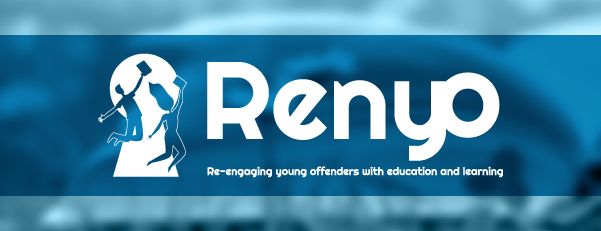

The project is supported by a digital infrastructure which facilitates learners’ journeys (both education staff and young offenders).
The digital infrastructure and its associated tools, enable users to assess progress along their journey, and areas of focus for them as learners. The infrastructure includes a repository for online educational resources and a community of practice for both learners and educators (trainers and education staff).
What RENYO aims to do
|
|
This project has the following objectives:
- Enhance educators’ capability to re-engage young offenders with education and learning whilst in secure custodial settings;
- Establish a network of partners in the EU who share this aim;
- Train education staff in secure settings to engage young offenders with education through the use of “authentic inquiry” as an intervention to enrich educators’ repertoires in learning design;
- Develop improved practice around a digital learning infrastructure so changes are more likely to sustain beyond the lifespan of the project;
- Write a research paper sharing the outcomes and learning to support dissemination and sustainability.
RENYO: main activities
|
|
- Train the Trainer Programme: training programme to train the trainers in partner countries;
- Methodological Approach: prison education staff will be trained in the authentic inquiry methodology;
- Resources for Education Staff in Secure Settings: partners tailor the resources and materials to their own context;
- RENYO Research Paper that will include analysis of the quantitative and qualitative indicators about changes of education staff capabilities in understanding and responding to the young people’s educational need.
Beneficiaries
|
|
- (Prison) educators, (prison) teachers, counsellors, youth workers;
- Young offenders;
- Universities and other educational institutions, NGOs and other higher engaging in prison education;
- Policy makers, Ministries, particularly Ministries of Justice and National Prison and Correctional Administrations.
What has been done so far?
|
|
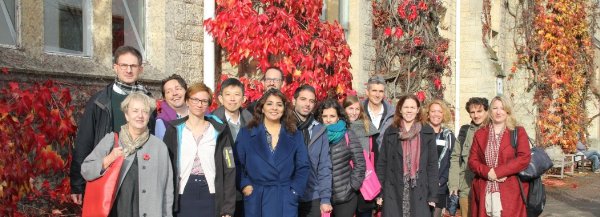
The RENYO Project had its Kick Off Meeting on 8th and 9th November 2018 at the University of Gloucestershire.
Partners from Italy, Spain and Germany and a learning analytics specialist organisation took part at the meeting.
Moreover, a local partners Vinney Green Secure Children’s Home - a secure custodial setting in United Kingdom - was present. A visit with all partners has been organised.
“The young people held within the Secure Unit are likely to be amongst the most troubled and troublesome in the country. Equally, they will be vulnerable and often arrive with a history of difficult and challenging behaviour. However, within an environment of reflection, challenge, personal attention and specialised help, they will be encouraged to develop a range of skills, increased self-esteem and personal responsibility, as well as changes in attitude. By creating this environment, an atmosphere exists in which change and improvement can be sustained.
The long term objective of the unit is to work with young people to change their problematic behaviours to allow them to become a responsible member of his or her community. Full preparation for leaving will be undertaken with particular focus on individual need and circumstances, as well as training, education and employment opportunities.”
Upcoming Events
|
|
A Train the Trainer Programme will take place on June 25-26th 2019 in Palermo (Italy). During the training, each country will pilot the programme with trainers from each partner (1-2 trainers per country) to use the platform as well as pedagogical knowledge about authentic inquiry.
The materials will consist of a theoretical underpinning of authentic inquiry and the evidence base for it. Other materials will include practical examples of authentic inquiry used in a range of settings and particularly with disengaged learners.
The impact of this training is crucial because the trainers will be the key individuals who will take the authentic inquiry methodology into the partner countries and to prison educators.
A dedicated website is currently being worked on. Stay tuned!
|
|
Partners
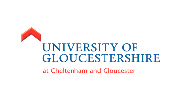
Coordinator:
University of Gloucestershire
United Kingdom
The University of Gloucestershire (UOG) is a diverse, vibrant community of 9,000 undergraduate students, 1,000 postgraduate students, 40,000 alumni and 1,000 staff from all across the world. With campuses in Cheltenham and Gloucester, the University offers its students a specialised and dynamic place to learn, grow and make lasting connections. UOG focuses on excellence in teaching, with a mission to enable its students to achieve their full potential through a rich and broad experience. UOG prides itself on building close relationships between students and staff, and on serving the wider community through promoting its economic, cultural and social wellbeing.
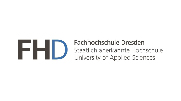
Fachhochschule Dresden
Germany
The Fachhochschule Dresden – University of Applied Science (FHD) was founded in 2012 and established several study programmes. Fashion Design, Graphic Design, Media Computer Science and Media Design, Business Administration, Tourism and Event Management, Nursing and Health Care Management as well as Social Pedagogy and Management, which is the most important study programme with approximately 400 students.
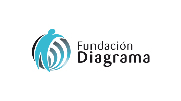
Fundacion Diagrama Intervencion Psicosocial
Spain
Fundación Diagrama Intervención Psicosocial (FDIP) is a non-profit organisation that, since 1991, has been taking care of the needs of vulnerable people and people in social difficulties; always defending and promoting Human Rights. Its main objective is to promote the development of centres, programmes and research aimed to the prevention, treatment and integration of people in social difficulties or at social risk, especially children, families, young people, women and dependants.

Learning Emergence LLP
United Kingdom
Learning Emergence (LE) helps individuals, teams and organisations become better at learning. It does this through unique Learning Power diagnostic tools and supporting people in authentic enquiry journeys which contribute measurably to data - inform local solutions and empower self-directed, resilient learners. 'Learning Power' is a term which describes this approach - resilient people are a pre-requisite for resilient practices at all levels of society.

CESIE
Italy
CESIE is a non-governmental organisation, established in 2001, inspired by the work and theories of the Italian sociologist Danilo Dolci (1924-1997). CESIE contributes to the active participation of people, civil societies and institutions through the implementation of projects in various thematic areas, towards the promotion of growth and development, always valuing diversity in ethics and human development.
|
|

The European Commission support for the production of this publication does not constitute an endorsement of the contents which reflects the views only of the authors, and the Commission cannot be held responsible for any use which may be made of the information contained therein.
|
|
|
|

|
|
|
|
|
Fundación Diagrama Intervención Psicosocial |
|
|